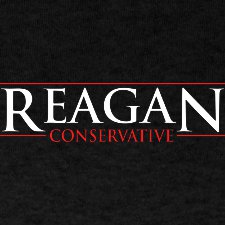Energy: It wasn't anything mysterious that allowed Ronald Reagan to bring gasoline prices down so far, so fast. It was something we could use a commitment to in the executive branch today: economic freedom.
Skyrocketing gas and heating oil prices were the most infuriating development associated with what was mistakenly called the "energy crisis" during the 1970s. Mighty America, it seemed, had lost grasp of world events and the global economy.
It was understandable that presidential leadership in the world would slip badly during Watergate and Vietnam, but when a new Democratic president untainted by war or massive scandal was placed in the driver's seat in the latter half of the decade, what could explain his failure to rein in the price of oil?
Oil, which was about $20 a barrel in constant dollars at the beginning of the decade, exceeded $100 by 1980. The man the American people had elected to be leader of the free world put his incompetence in a nutshell in his May 24, 1979, diary entry:
"I had a depressing breakfast with economic advisers, who don't know what to do about inflation or energy."
That didn't stop Jimmy Carter from embracing a windfall-profits tax on Big Oil. But if he and those he appointed didn't know what to do, liberal Democrats in Congress certainly knew what wasn't going to work. Reagan's decontrolling the market for oil was lambasted and lampooned on the Senate and House floors.
As Steven Hayward puts it in the second volume of his epic history "The Age of Reagan": "In the annals of public policy prognostication it is difficult to find such a wide assembly of wrongheadedness."
Sen. Howard Metzenbaum of Ohio promised in early 1981, "we will see $1.50 gas this spring, and maybe before. And it is just a matter of time until the oil companies and their associates, the OPEC nations, will be driving gasoline pump prices up to $2 a gallon."
Sen. Dale Bumpers of Arkansas claimed, "without rationing, gasoline will soon go to $3 a gallon." Sen. George Mitchell of Maine, later the Senate's Democratic majority leader, warned that "every citizen and every family will find their living standards reduced by this decision."
Instead, when Reagan removed price controls on oil via an executive order issued shortly after his inauguration, the price fell almost immediately and kept dropping so that by the first year of his second term average gas prices were below 90 cents a gallon.
Thanks to Reagan showing the way, it would be many years before rising gas prices would become a problem for Americans, with many gas stations still selling regular for well under 90 cents even in the late 1990s. Somehow the nation's greedy oil companies were found to be uninterested in gouging consumers when they would have little noticed.
As Brian Domitrovic, economic historian at Sam Houston State University noted recently in Forbes, when Reagan's energy, monetary and tax cut policies were in full swing in early 1983, "the whole energy crisis was on the cusp of vanishing from the scene."
Domitrovic points out that somehow all the petroleum "'supply' crises also disappeared for good. This was so even though the world's major economy was embarking on one of its most remarkable modern runs of multidecade growth."
Inflation, somehow, wasn't accompanying the Reagan boom, as economists of the left believed it must.






No comments:
Post a Comment